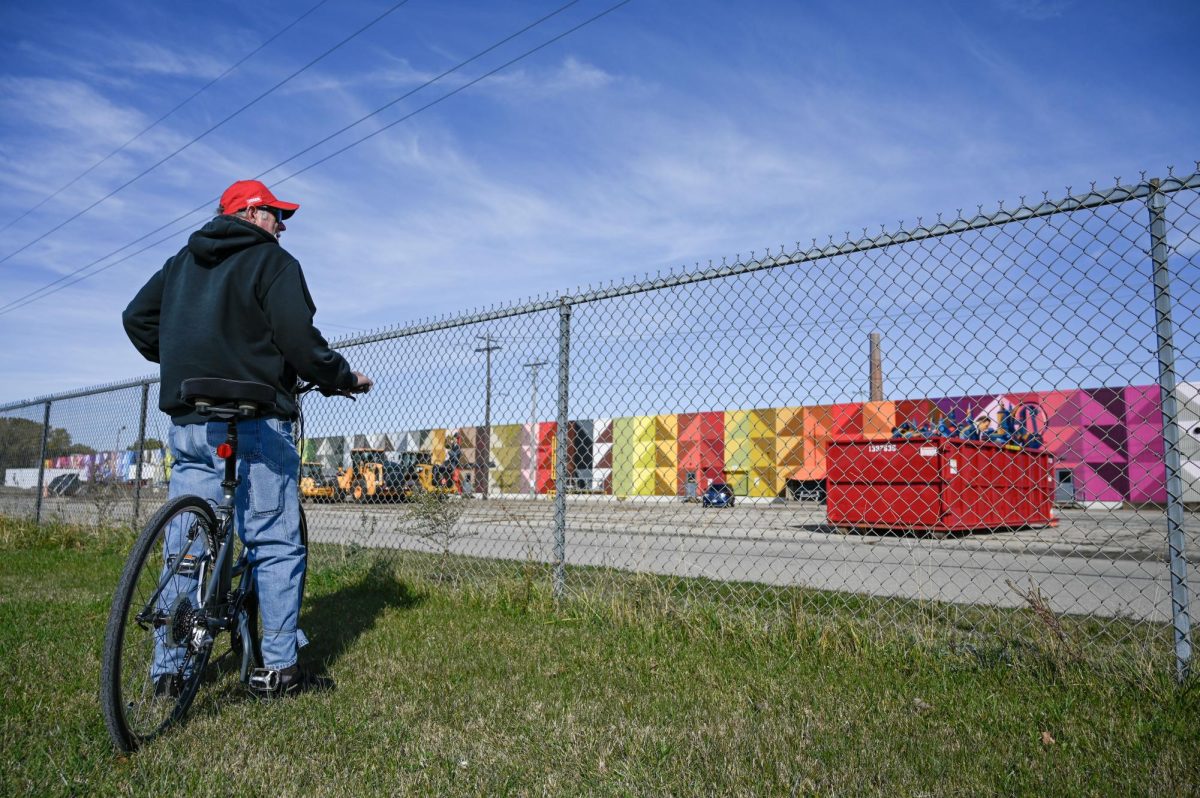UW Oshkosh hosted the Free School event, which held workshops that focused on sustainability and increasing awareness about the condition of our environment on April 23. The event was run by the Student Environmental Action Committee and included events such as Envisioning A Sustainable Farm For The Future and an interactive class that taught attendees about vermicomposting. UWO student Logan Myers said he originally attended the event for extra credit offered by his biology professor, but was looking to get more out of the event. [Im looking] to gain some new perspectives on ideas that havent been challenged in a while; some new innovations, Myers said. Myers said he thinks our society is becoming more sustainable and it is becoming cool to help save our planet. I think its definitely important, Myers said. You only have one earth and you [have to] protect it. Erika Van Ryzin is a freelance teacher and owner of Dancing Frog Farm in Fremont, Wisconsin and travels around teaching others about natural remedies and making the world more sustainable. Van Ryzin was the teacher of the Envisioning A Sustainable Farm For The Future workshop and said sustainability should be incorporated through every level of schooling. There should be something to deal with sustainability every season, Van Ryzin said. It should actually start at elementary school. Event attendee Thatcher Peterson said integrating sustainability into the education system earlier is harder than it sounds. Do you waste time teaching sustainability to high school kids given that their schedules are so tightly organized? Peterson said. For every thing you add to them, what are you going to take away? Peterson said the trade-offs for teaching sustainability are what causes him the most trouble supporting sustainability being taught in schools, even though he thinks it is important. Sustainability and the various meanings of it, is one of many, many areas that you can say are equally important, Peterson said. I dont know which of these areas is more important than any other areas. For every course you take in sustainability, youre not taking a course in something else. UWO environmental science alum Torrence Hess said he thinks sustainability is hard to teach and wishes the sustainability council would incorporate more science into their classes. It would be nice if they tied sustainability in with some heavy science, instead of just people having worms in their kitchen, Hess said. Daniel Benz, who owns Hedgehog Lawn and Garden in Oshkosh, volunteered his time to help Hess lead the vermiculture workshop, which is the process of composting, at the event. Benz said the goal of his business is to take their worm farm and build it into his landscaping company and become a zero waste company, which will cut out having to run to the dump all the time. Even though the dump is now composting, its still on the city and that costs taxpayers money, Benz said. Whereas if we can do it, we can create food, plants, sell plants at plant fairs [and] off season produce. Benz said he is going to put on a display about succotash farming as well, which is a form of Native American farming. You grow the corn stalks, grow the pole beans up the corn, then you cover the ground with squash, making very good use of the property, Benz said. This isnt Benzs first time volunteering for the UW system as he said he helps out at the UW gardens, including building a hoop house, which is a low budget greenhouse. Benz said he was going to use this hoop house, which cost less than $500 to build, to get students more involved. Were basically going to be able to get the students interested earlier during the school year to get them there to start their seeds and nurture their plants, Benz said. So that when it comes time to plant them, which is in May, theyre almost out of school. If they have more invested into, they will put more time into their garden, and in turn theyll learn more.
Categories:
Free School provides teaching moments
April 27, 2016
0
More to Discover








